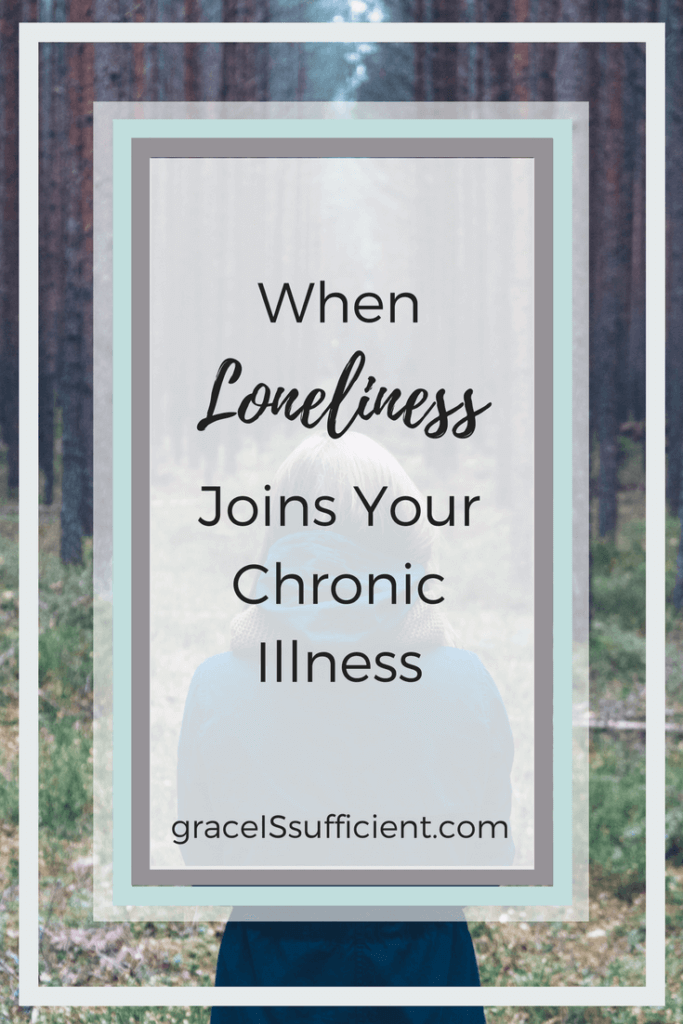There are many reasons why someone with a chronic illness might find themselves lonely.
- Stepping back due to fatigue or other symptoms.
- Not wanting to talk about your illness.
- Afraid others don’t believe you or they’re talking behind your back.
- Mistreatment from those lacking compassion.
- Not feeling worthy enough to be part of the group.
So while all these reasons seem like legitimate excuses to back away from family, friends, and social situations, we need to understand that loneliness can bring about health problems as well.
Studies have shown that chronic loneliness can leave you with high blood pressure, eating disorders, depression, anxiety, a higher risk for suicide, and decreased memory.
Psychologically speaking, loneliness distorts our thinking and makes us believe those around us care less than they do. We become afraid to set ourselves up for rejection when we’re already feeling so hurt.
While everyone experiences loneliness at times, it’s important to stay aware of the frequency of these emotions. If it gets to a point where you’re avoiding everyone, staying in the house, or not answering your phone please seek help!
Here are 6 tips to help you fight feelings of loneliness:
- Stay connected through social media. We’re fortunate to live in a time where social media can keep us connected without leaving our homes. Your friends may wonder if you’re pulling away from them due to having to cancel plans or by becoming a bit quieter because you don’t want to talk about your illness. Stay connected, that way you can share in their day-to-day even if you can’t get out.
- Join a support group. A quick internet search will direct you to one in your area. It doesn’t even have to be a chronic illness group. Join a book club, craft group, or any other gatherings of those with a similar interest to yours.
- Get involved in a church group. Join a small group or Sunday school class at your church. Breaking down the larger church body into a smaller more intimate group can lead to a greater sense of connection.
- Schedule a monthly or weekly lunch with a friend. Make it a scheduled commitment on your calendar to take care of yourself mentally by spending time with someone you care about.
- Get out of the house. Sit on your porch or take a short walk if you’re able. Be sure to smile at others that cross your path. Even the small gesture of venturing outside, where people are, will help you make the larger steps mentioned above.
- Don’t listen to your inner critic. When you’re feeling lonely or faced with an opportunity to be around people, your inner critic will try to keep you from interacting with others. It may say things like, “They don’t believe how sick I am so I’ll just stay away?” Or, “I can’t keep up with all the activities so I won’t bother to get involved at all.” Believe it or not, your inner critic can be the biggest factor in keeping you reclusive.
What steps do you take to avoid the pull of loneliness?
Part 1 of this 4 part series: The Vicious Cycle of Rumination
Part 3 of this 4 part series: The Battle Between Chronic Illness and Self-Esteem
Part 4 of this 4 part series: When Your Chronic Illness Triggers Depression





